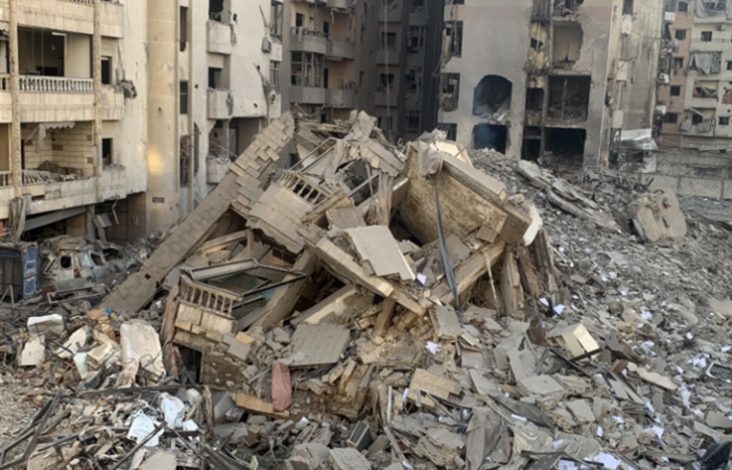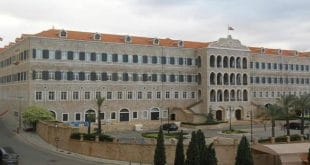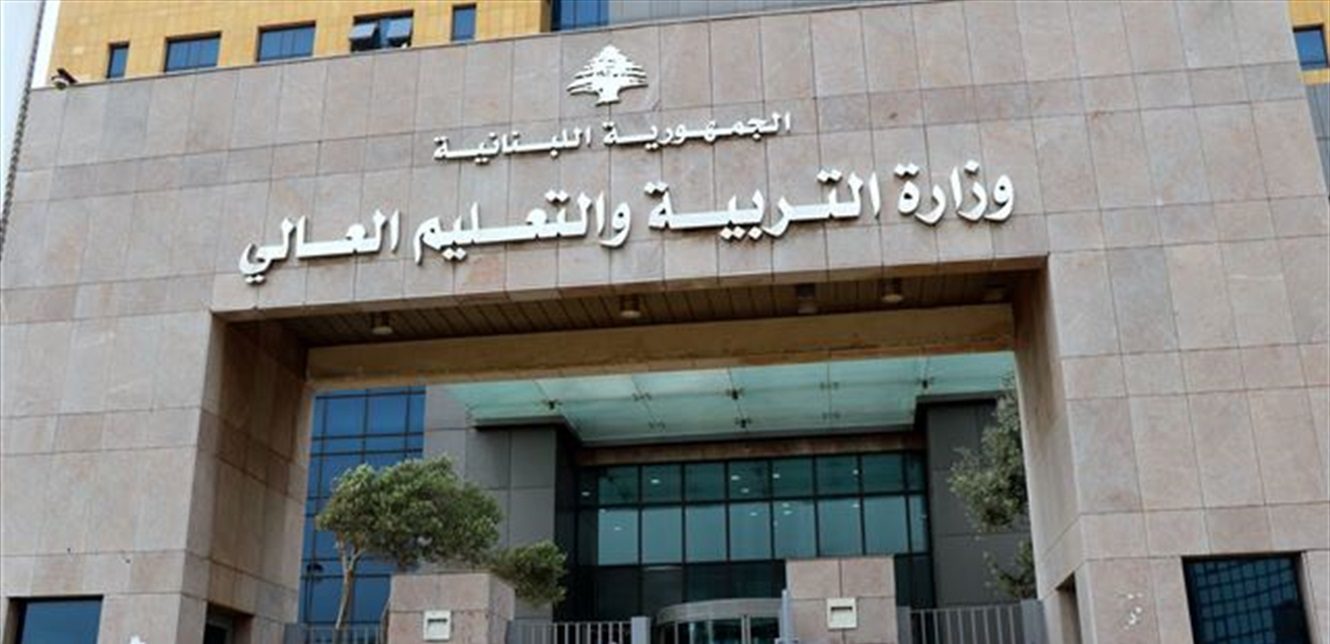لا مساعدات للبقاع الشمالي: الدولة غائبة والأمر للجمعيات
منذ بداية العدوان الإسرائيلي على لبنان، برزت أزمة محافظة بعلبك – الهرمل التي نأى الكلّ بعيداً عنها. ورغم أن هذه المحافظة تضمّ أكبر عددٍ من النازحين من بيوتهم، وفي بيوتهم أيضاً، إلا أنها لم تحظَ بأي اهتمامٍ رسمي، وحتى مع تركيز العدوان عليها، لا تزال في آخر سلّم الأولويات.
فعدا ما يقوم به حزب الله وبعض الجمعيات المحلية، لا أحد يقدّم شيئاً، فيما الحجة الدائمة أن الأوضاع الأمنية تحول دون وصول شاحنات المساعدات أو إيصال المواد والأدوية إلى المحال التجارية والصيدليات، إذ لم تنل منطقة البقاع كلها من «نعم» المساعدات سوى 9 شاحنات، 5 منها وصلت في الدفعة الأولى، وكانت محمّلة بـ2500 حصة غذائية و«فرش» وحرامات، و4 شاحنات في الدفعة الأخيرة، بلغ مجموع ما وصل على متنها 860 حصة غذائية ومثلها أيضاً «فرش» وحرامات، وفق النائب ملحم الحجيري. وحتى عندما بدأ التفكير بتقسيم الموارد المالية على المحافظات لمواجهة العدوان، رُصد لمحافظة بعلبك – الهرمل حوالى 3 آلاف مليار و500 مليون ليرة، أي ما يعادل 40 ألف دولار! وهو ما دفع بأحد النواب إلى القول للمحافظ بتهكّم «لو محلك رديتهن».
أمس، دعا نواب المنطقة إلى اجتماع موسّع في المجلس النيابي مع محافظ بعلبك ـــ الهرمل بشير خضر، حضره رؤساء البلديات ورؤساء الاتحادات، وكان بحث مطوّل حول من يتصرف بالمساعدات، ولماذا سُلّمت للجمعيات الدولية وليس لمستحقيها مباشرة، ولماذا لا يُصرف شيء إلا بأمر من «فوق»؟ و«فوق» هنا يُعنى بها إلى جانب الحكومة الجمعيات الأممية التي تفرض سطوتها.
لذلك، تطرّق المجتمعون إلى المساعدات بشقيها، الآتي من الدولة أو الآتي من المنظمات الدولية. في الشق الأول، وُجهت انتقادات إلى الدولة وروتينها الإداري وطريقة تقسيمها الحصص للمناطق. أما المساعدات من المنظمات الدولية، فذلك حديث يطول. فحتى اللحظة، لم يرَ أهل المنطقة أي حصص، إذ «لا تزال الجمعيات تحصي، وهم على هذه الحال منذ شهرٍ ونصف شهر»، يقول النائب علي المقداد.
جلّ المجتمعين أمس مقتنعون بأن ما يجري هو أقرب إلى قرار بالحصار، حيث لا يُصرف شيء من دون أن تشرف عليه المنظمات. ويشير الحجيري إلى «التعاطي السلبي مع ملف النازحين والمنطقة عموماً، فحتى المساعدات التي تصل تُسلّم للجمعيات»، متسائلاً: «ألم يكن من الأجدى إعطاؤها للبلديات أو الاتحادات لإيصالها إلى مستحقيها؟ يعني إذا بدنا فرشة بدنا نشوف مفوضية اللاجئين!»، معتبراً أن ما يحدث «نهج بدأ عام 2019».
واليوم، بات هذا النهج أوضح مع «سلوك الجمعيات وصولاً إلى إذلال النازحين»، مشيراً إلى ما حصل أول أمس عندما افتُتحت حضانة تابعة لمركز وزارة الشؤون الاجتماعية في عرسال، حيث «وقف النازحون من التاسعة صباحاً حتى الحادية عشرة ليلاً قبل أن تتكرم علينا إحدى الجمعيات لإتمام الأمر». أليس حصاراً هذا؟ وأليس حصاراً آخر وضع المهمة التنفيذية في أيدي المحافظين، لا المخاتير ورؤساء البلديات، علماً أن هؤلاء يعرفون بتفاصيل السكان وإلى أين نزحوا ويمكن الاعتماد عليهم في ملف المساعدات؟
إلحاق البقاع بمجلس الجنوب ومطالبة للجيش بمواكبة المساعدات
لكن، بما أن كل هذا بات معروفاً، لم يستحوذ «النق» كثيراً على الجلسة، فجلّ ما كان مطلوباً استعادة الدولة في بعلبك ــــ الهرمل، لكون الأزمة لا تخصّ النازحين فقط بل المستضيفين أيضاً. ولذلك، جرى التوافق على «إسناد الإغاثة إلى مجلس الجنوب الذي يملك الإمكانات البشرية والمالية».
كذلك، كان ثمة مطلبان آخران، الأول إعطاء الحكومة أمراً للجيش بالمواكبة لتأمين وصول ما يلزم إلى المنطقة، وأن «نحصل على تقرير مفصّل بما يصل إلى الدولة وما يصل منها إلى المنطقة»، يتابع المقداد. ومن الأمور الأخرى العمل على تفعيل خلية الأزمة في المنطقة، ولو من خلال إنشاء «مجموعة واتسآب»، تستعين بها المحافظة بالبلديات والاتحادات.
المسؤولية موصولة من «مركز القيادة» في العاصمة وصولاً إلى بعلبك – الهرمل. فخطة الطوارئ التي وُضعت قبل عامٍ تقريباً، تبيّن مع بدء العدوان الهمجي أنها حبر على ورق. ورغم أن الحرب القائمة فاقت التصورات الممكنة، إلا أنه حتى الحد الأدنى غير موجود. فـ«بدل أن نرشد النازحين إلى أين يذهبون، كنا نعمل لدى أفيخاي أدرعي ونرشدهم من أي أبوابٍ يخرجون».
وهذا لبّ المشكلة، ومسؤولية الحكومة التي تعمل على قاعدة «من هالك لمالك لقبّاض الأرواح»، إذ إن أبسط ما يمكن أن يحدث في كل محافظة أن يكون لها مركز بديل في حال تعطّل العمل في المركز الأصيل، وأن تكون لديها خريطة كاملة بكل ما يخص المنطقة من النازحين وأماكن نزوحهم وما وصل وسيصل وكيف يوزّع. وهذا «ما لم يحدث».
فماذا يعني مثلاً أن يدير محافظ محافظة من دون فريق عمل؟ وماذا يعني أن يدير «مسؤول» في المحافظة عمله من الخارج؟ وأن يغيب قائمقام في إحدى أكبر المناطق عن السمع منذ بداية العدوان لأنه «مدعوم»؟ كل هذا يحدث في بعلبك ـــ الهرمل، حيث القيادة على شاكلة الدولة غائبة، فيما تتحكّم الجمعيات بكل مفاصل المساعدات.
المصدر: راجانا حمية – الأخبار
No Assistance for Northern Bekaa: The State is Absent and It's Up to the NGOs
Since the onset of the Israeli aggression against Lebanon, the crisis in the Baalbek-Hermel governorate has emerged, with everyone distancing themselves from it. Despite this governorate housing the largest number of displaced persons, it has received little to no official attention. Even as the aggression intensifies, it remains low on the list of priorities.
Other than what Hezbollah and some local associations are doing, no one is providing assistance. The constant excuse is that security conditions prevent trucks carrying aid or supplies from reaching stores and pharmacies. According to MP Melhem Al-Hajjar, the entire Bekaa region has received only nine aid trucks: five in the first batch containing 2,500 food parcels along with mattresses and blankets, and four in the last batch, which delivered a total of 860 food parcels and similar supplies. When discussions began regarding the allocation of financial resources to the governorates to address the aggression, the Baalbek-Hermel governorate was allocated approximately 3.5 trillion Lebanese pounds, equivalent to just $40,000, prompting one MP to sarcastically suggest to the governor, “If I were you, I would refuse it.”
Yesterday, the region's MPs called for a comprehensive meeting at the Parliament with Baalbek-Hermel Governor Bashir Khadr, attended by mayors and union heads. The discussion focused on the management of aid: why it was handed over to international organizations instead of directly to those in need, and why nothing is spent without directives from “above,” referring not just to the government but also to international organizations imposing their authority.
Consequently, the attendees addressed both forms of aid, whether from the state or from international organizations. Criticisms were directed at the state for its bureaucratic inefficiencies and the way it distributes resources among the regions. The discussion regarding international organizations is ongoing, as residents have yet to see any of the promised supplies. MP Ali Al-Muqdad noted that “the organizations are still counting, and they have been in this situation for a month and a half.”
Most of those present yesterday are convinced that what is happening resembles a decision to impose a siege, where nothing is distributed without oversight from the organizations. Al-Hajjar pointed out the negative approach towards the displaced and the region as a whole, questioning, “Wouldn't it have been better to give the aid to municipalities or unions to deliver it to those in need? If we need mattresses, must we consult the refugee agency?” He believes that this approach began in 2019.
This approach has become clearer with “the behavior of the organizations, leading to the humiliation of the displaced,” he noted, referencing the recent opening of a daycare run by the Ministry of Social Affairs in Arsal, where “the displaced waited from nine in the morning until eleven at night before one of the organizations decided to help.” Isn't this a form of siege? Additionally, isn't it another form of siege to place the executive task in the hands of governors, rather than local leaders and mayors, even though the latter understand the specifics of the population and their displacement, making them more reliable for aid distribution?
The proposal to affiliate the Bekaa with the South Lebanon Council and call for military support for aid delivery was made. Given that all of this is already known, the meeting did not dwell much on complaints; rather, the main demand was for the state to reassert its presence in Baalbek-Hermel, as the crisis affects both the displaced and their host communities. Therefore, it was agreed to assign relief efforts to the South Lebanon Council, which possesses the necessary human and financial resources.
Furthermore, there were two additional requests: first, to instruct the army to assist in ensuring the necessary supplies reach the area, and second, to obtain a detailed report on what the state is receiving and what is reaching the region, according to Al-Muqdad. Other matters discussed included activating a crisis cell in the area, potentially through the establishment of a WhatsApp group to facilitate coordination between the governorate, municipalities, and unions.
The responsibility extends from the “command center” in the capital to Baalbek-Hermel. The emergency plan formulated nearly a year ago has proven to be mere words on paper since the onset of the brutal aggression. Although the current conflict exceeds all imaginable scenarios, the basic essentials remain lacking. Instead of guiding the displaced on where to go, we were operating under Avichai Adraee's directives, advising them on which exits to take.
This encapsulates the problem and reflects the government's responsibility, which operates on a principle of “from the dead to the living, to collect souls.” The simplest measure that could be taken in any governorate is to establish an alternative center in case the original one becomes inoperable, along with having a comprehensive map detailing everything regarding the displaced persons, their relocation, what has been received and what will be received, and how it will be distributed. This has not occurred.
What does it mean, for instance, for a governor to manage a governorate without a team? What does it mean for a “responsible” official in the governorate to conduct his work from abroad? And how can a mayor in one of the largest regions remain unheard since the onset of aggression because he is “supported”? All of this transpires in Baalbek-Hermel, where leadership, much like the state itself, is absent, while NGOs control all aspects of aid distribution.
Translated by economyscopes team
 سكوبات عالمية إقتصادية – EconomyScopes إجعل موقعنا خيارك ومصدرك الأنسب للأخبار الإقتصادية المحلية والعربية والعالمية على أنواعها بالإضافة الى نشر مجموعة لا بأس بها من فرص العمل في لبنان والشرق الأوسط والعالم
سكوبات عالمية إقتصادية – EconomyScopes إجعل موقعنا خيارك ومصدرك الأنسب للأخبار الإقتصادية المحلية والعربية والعالمية على أنواعها بالإضافة الى نشر مجموعة لا بأس بها من فرص العمل في لبنان والشرق الأوسط والعالم




